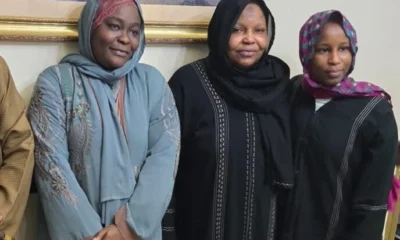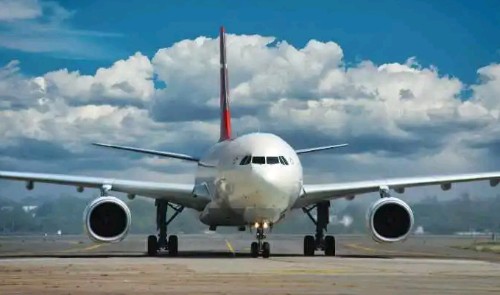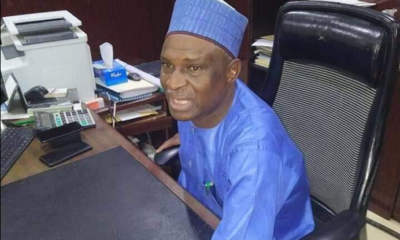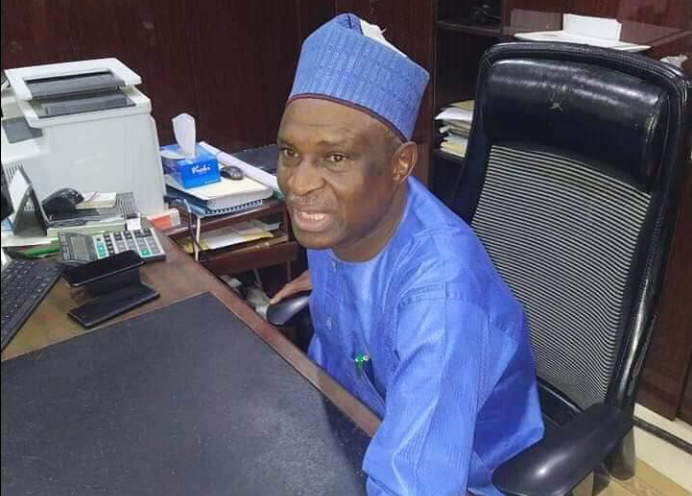Over a month ago, Kamil Al Awadhi, vice-president for Africa and the Middle East, International Air Transport Association (IATA), converged with journalists in Doha, Qatar, at the 78th annual general meeting and world air transport summit.
Al Awadhi’s simple task was to intimate the press on the economic positioning of the global aviation sector and other key issues critical to the association’s goals.
Clearly stated: Foreign airlines are unable to repatriate about $450 million in earnings.
Al Awadhi said as of April, a total of $1.6 billion in funds were blocked by 20 countries worldwide — with 67 percent of it tied up in 12 African nations.
But the amount blocked in Nigeria, a country currently dealing with a shortfall of foreign exchange (FX) and a dwindling reserve, is the highest in Africa.
“Nigeria alone is holding back $450 million. It is the most amount blocked by any single African country, and the amount is rising every week,” Al Awadhi had complained.
“Cash flow is key for airlines’ business sustainability — when airlines are unable to repatriate their funds, it severely impedes their operations and limits the number of markets they can serve.
More frustrating for Al Awadhi was that attempts to recover the funds have hit walls tremendously.
In fact, talks with Nigerian officials to release the funds have been a “hectic ride”, Al Awadhi said.
He warned that the position of the authorities could lead to reduced air connectivity and maybe, make Nigeria distasteful to investors.
“The consequences of reduced air connectivity include the erosion of that country’s competitiveness, diminished investor confidence, and reputational harm caused by a perception that it is a high-risk place to do business,” he added.
Barely a month after the air transport summit ended, Al Awadhi’s predictions of some consequences are already manifesting and making a scapegoat out of travellers and travel agents.
On August 15, Emirates Airlines, the flag carrier of the United Arab Emirates (UAE), said it would reduce flight operations to Nigeria over the inability to repatriate about $85 million in revenue.
“We have had no choice but to take this action, to mitigate the continued losses Emirates is experiencing as a result of funds being blocked in Nigeria,” the airline said in a recent statement.
“As of July 2022, Emirates has US$85 million of funds awaiting repatriation from Nigeria. This figure has been rising by more than $US 10 million every month, as the ongoing operational costs of our 11 weekly flights to Lagos and 5 to Abuja continue to accumulate.”
A travel agent at the Muritala Muhammad International Airport in Lagos told TheCable that the news of the federal government’s refusal to allow access to the sum is leading to increasing restrictions imposed by airlines on tickets out of Nigeria.
He said routes originating from outside Nigeria, such as Aberdeen to Lagos or New York to Abuja, could experience restrictions.
“Several airlines no longer allow Nigerian agents to issue such tickets, so we may be restricted in the range of airlines we can offer… we believe that restrictions will be in place for some time to come,” he said.
RESTRICTIONS ON BOOKING CLASS (INVENTORY)
The source also said there are now booking class restrictions, explaining some airlines have “dramatically restricted which classes can be sold to enable them to collect more naira per seat to offset their currency exchange woes.”
Confirming the development, Susan Akporiaye, president of the National Association of Nigeria Travel Agencies (NANTA), said the restrictions, mainly on the type of tickets sold, affect travel agencies.
“We can longer sell tickets that the point of origin is not Nigeria — UK or USA to Nigeria return — for example,” she said.
“We cannot sell the cheap tickets for some airlines as it has been taken out of the system. We cannot sell tickets that does (sic) not touch Nigeria, for example, London to Washington back to London.”
Akporiaye told TheCable that some airlines have removed lower inventories from the system. This means that in the economy cabin, for instance, prices ranging from N500, 000 downward have been removed, leaving Nigerians with the “highest inventory [which] is about N1.8milion”.
According to her, airlines have stopped selling the lower inventories because they make losses from them if they have to go to the parallel market to get dollars to fund operations.
“The higher inventory is what would make them to be able to break even and still have a little spread to be able to pay their staffs,” Akporiaye said.
TRAVELLERS SPEND MORE
The combined action of restricted tickets and booking classes put pressure on travellers’ budgets. Several agents said they are only left with the highest ticket fare in a cabin as the lower ones have been yanked off.
In addition, given that people would still want to travel to any part of the world, travel agents in Nigeria would have to source such tickets from colleagues outside Nigeria on behalf of customers.
The development makes the tickets more expensive since they are domiciled in dollars or the currency of that market.
Weighing in on the matter, Sindy Foster, principal managing partner, Avaero Capital Partners, said the situation is seriously impacting everyone involved: the foreign airlines, travel agents, and passengers.
Foster argues that removing cheaper tickets from airlines’ inventories has triggered paltry sales for agents and compels people to change their travel plans.
“A lot of people have been forced to travel indirect routes as those are cheaper and to downgrade from premium classes to the economy,” Foster said.
NIGERIA LOSING OUT ON REVENUE
But the country itself is not shielded from the boomeranging effect of declining the repatriation of funds. With travel agencies buying tickets from other markets for their clients, Nigeria is, therefore, losing revenue from ticket sales.
“The revenue for us as a travel agency will not also come to us. It will go to our other colleagues in other parts of the world, doing those tickets for us. You know airlines still pay local tax to the Nigerian government,” Akporiaye explained.
“If they’re supposed to pay tax on one million tickets in a month, because of this restriction, they’ll probably pay only on 500,000. So, the government has lost income from 500,000 tickets. So, it’s a loss to the Nigerian government.”
For Foster, it does not bode well for the country as it comes at a time Nigeria is seeking foreign investment, especially in the aviation sector.
“It sends the wrong signals,” she said.
VIOLATION OF INTERNATIONAL AGREEMENT
The bilateral aviation safety agreement (BASA) is an air transport agreement between two countries that allows designated airlines to operate commercial flights, covering the transportation of passengers and cargoes.
In October 2019, when Nigeria signed one of such agreements with India, the number of BASAs the country is a signatory hit 92.
The BASA, among other provisions, allows airlines to repatriate their earnings to their countries.
Article 15 of this agreement, titled ‘Transfer of earnings’, states that; “each designated airline shall have the right to its country on-demand local revenues in excess of sums locally disbursed. Conversion and remittance shall be permitted without delay in accordance with the prevailing exchange regulations”.
According to aviation experts, the government is violating the BASA agreements by not allowing airlines access to the funds.
“Part of the BASA agreement is they should be allowed to repatriate their funds to their own country. And it’s not being done right now. So, it’s a violation,” Akporiaye said.
Akporiaye, however, noted that it is not an intentional violation as the situation is said to be caused by the shortage of FX.
“That’s why nobody is suing Nigeria for that,” she added.
Acknowledging the provisions of the agreement vis-à-vis repatriation, Foster noted that while the existence of BASA makes airlines entitled; if the country has no forex to cover the entitlement, there is nothing the airlines can do “other than adjust their operations to take that into account.”
Speaking to TheCable via text messages, Sam Adurogboye, spokesperson, Nigeria Civil Aviation Authority (NCAA), pleaded with the government to help the airlines repatriate the funds.
“We can only plead with FG and CBN to assist them to repatriate their funds,” he said.
The federal ministry of finance and the Central Bank of Nigeria (CBN) did not respond to requests for comment on the matter.
Credit: The Cable

 BIG STORY3 days ago
BIG STORY3 days ago
 BIG STORY9 hours ago
BIG STORY9 hours ago
 BIG STORY3 days ago
BIG STORY3 days ago
 BIG STORY3 days ago
BIG STORY3 days ago
 BIG STORY2 days ago
BIG STORY2 days ago
 BIG STORY2 days ago
BIG STORY2 days ago
 BIG STORY3 days ago
BIG STORY3 days ago
 BIG STORY3 days ago
BIG STORY3 days ago






















